For tips on how to get a good night’s sleep, the Kneipp team in Germany spoke with sleep expert and psychotherapist Dr. Carolin Marx-Dick. Dr. Marx-Dick has been researching the wondrous world of sleep for more than 20 years and treats people who suffer from sleep disorders in her Dresden-based private practice. Here are some of the many questions about healthy sleep that she answered for us.
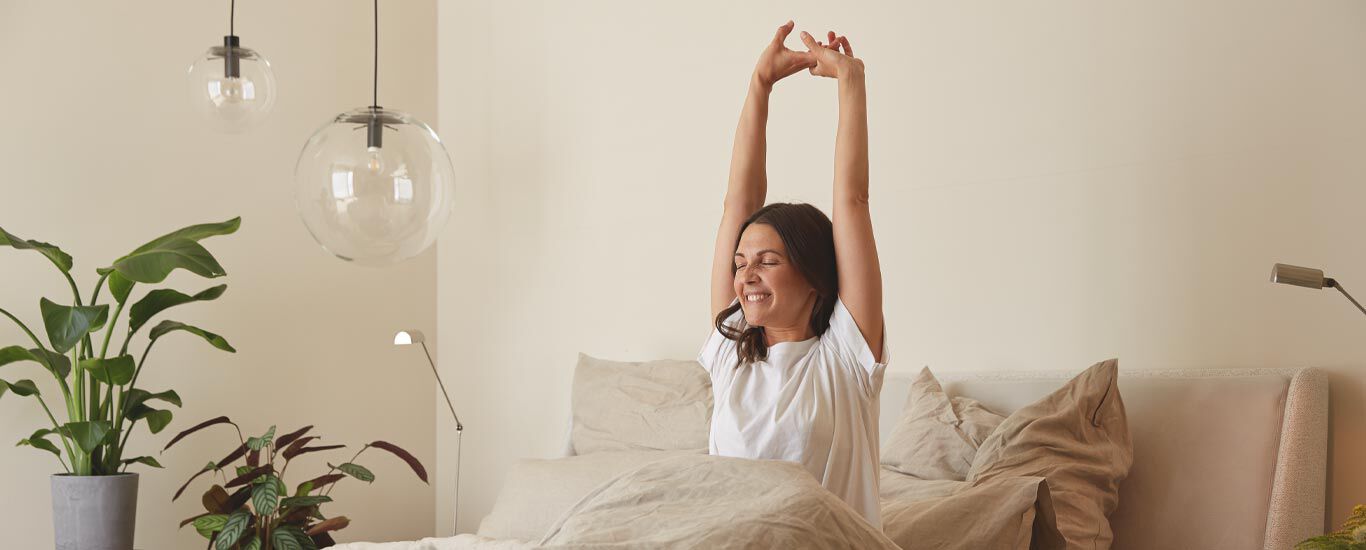
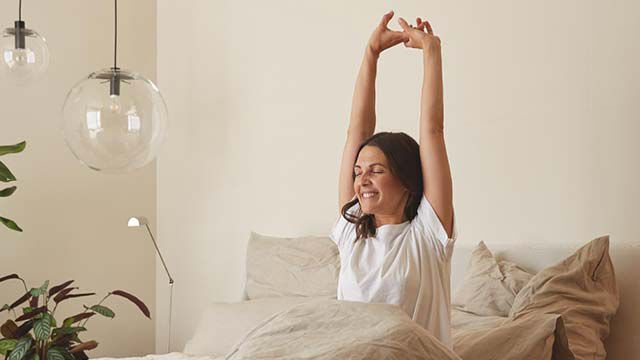
Healthy sleep: "When we sleep, our body recalibrates."
Feeling alert and well rested all day, every day? Sounds like a dream! But how much sleep do we actually need? What happens in the body and brain when we sleep? And should we take a power nap during the day?

Dr. Carolin Marx-Dick, we simply have to ask: How did you sleep last night?
Quite well, thank you! Although I personally am a sensitive sleeper—that is, I like to take my thoughts and worries to bed sometimes. After all, it helps me to better understand the needs and concerns of my patients.
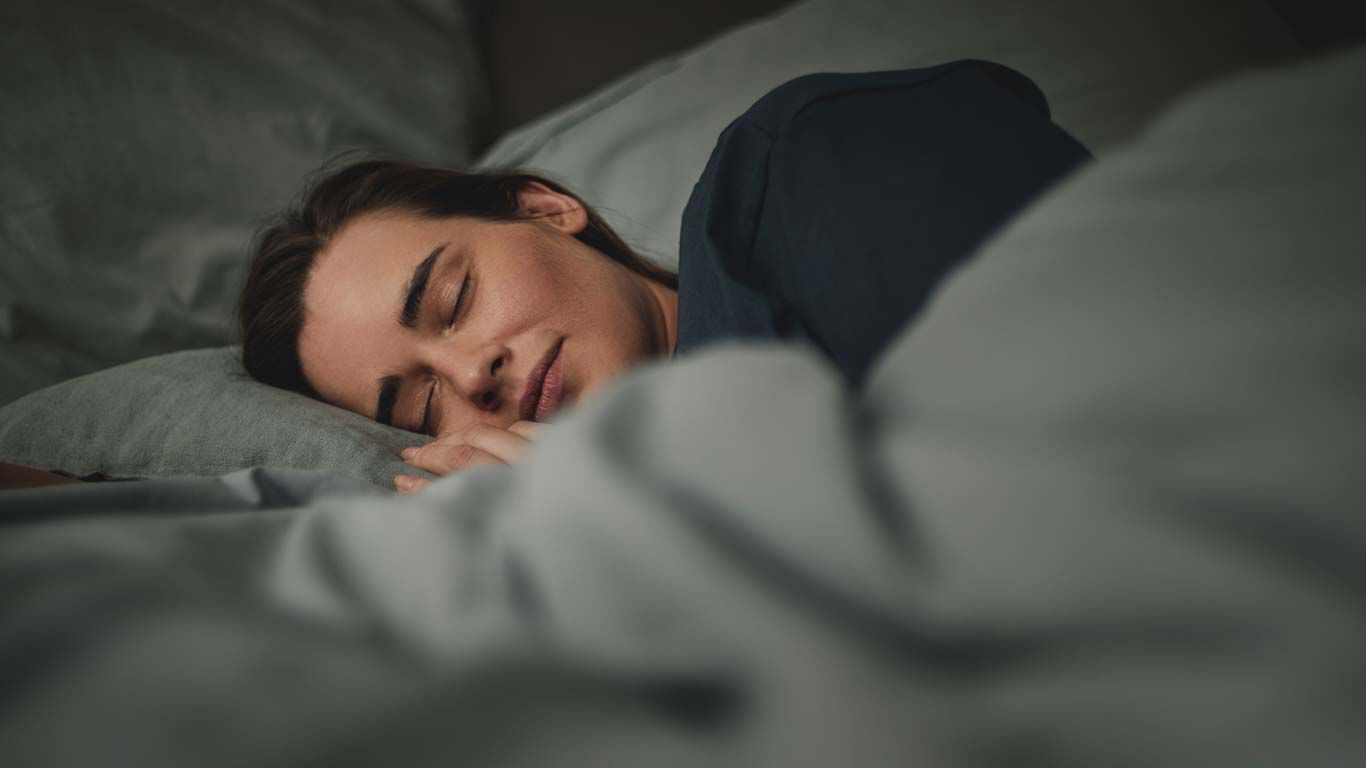
From a scientific point of view: Why do we sleep at all?
Humans are not nocturnal animals—even if some night owls feel otherwise. You can tell, for example, because unlike other creatures, we can't really see well in the dark, so we don't have any special protective function. However, sleep is also not a passive state–in fact, it’s quite the opposite. When we sleep, our body recalibrates its systems, so to speak.
Sleep is instrumental in building and maintaining the immune system. Sleeping poorly over a long period of time, this can promote inflammatory processes, because the body can no longer detox efficiently during the night. The brain also needs sleep. For example, we consciously perceive about 40 pieces of information per second while awake, but 40,000 subconsciously! All these different stimuli—what we see, taste, smell and feel during the day—are organized, compared with old experiences, stored or sorted out as we sleep.
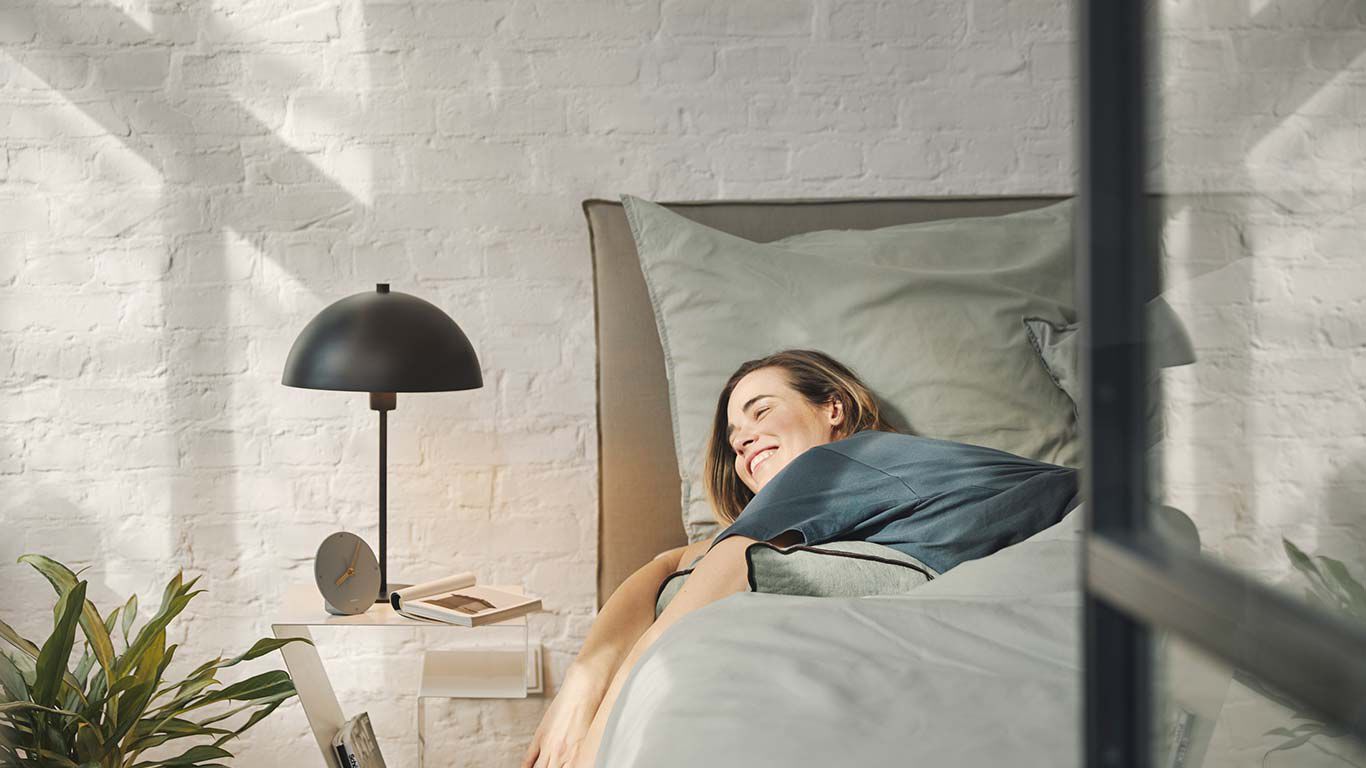
And why do we wake up? What tells our body to rise and shine?
The hormone cortisol is mainly responsible for this. You often read about it as the "stress hormone," but I actually find this designation a bit unfair. Cortisol is what makes us productive in the first place—and we have the most of it in the morning. So if you get up at the same time every day, your brain will "program" this information in at some point, so that you wake up at the usual time and with the highest cortisol concentration all by yourself, even without an alarm clock.
Sometimes you also wake up from sleep at night. What causes this?
This can also be due to cortisol levels. We can influence this through our daily habits. Let's assume you have an important appointment tomorrow morning that you absolutely must not miss. In this case, your cortisol level may drop only slightly at night to ensure that you don't oversleep the next day. (Your body wants to do you a favor.) On the other hand, this very mechanism can lead to sleep disorders in some people who are then unable to relax due to "self-made" stress.
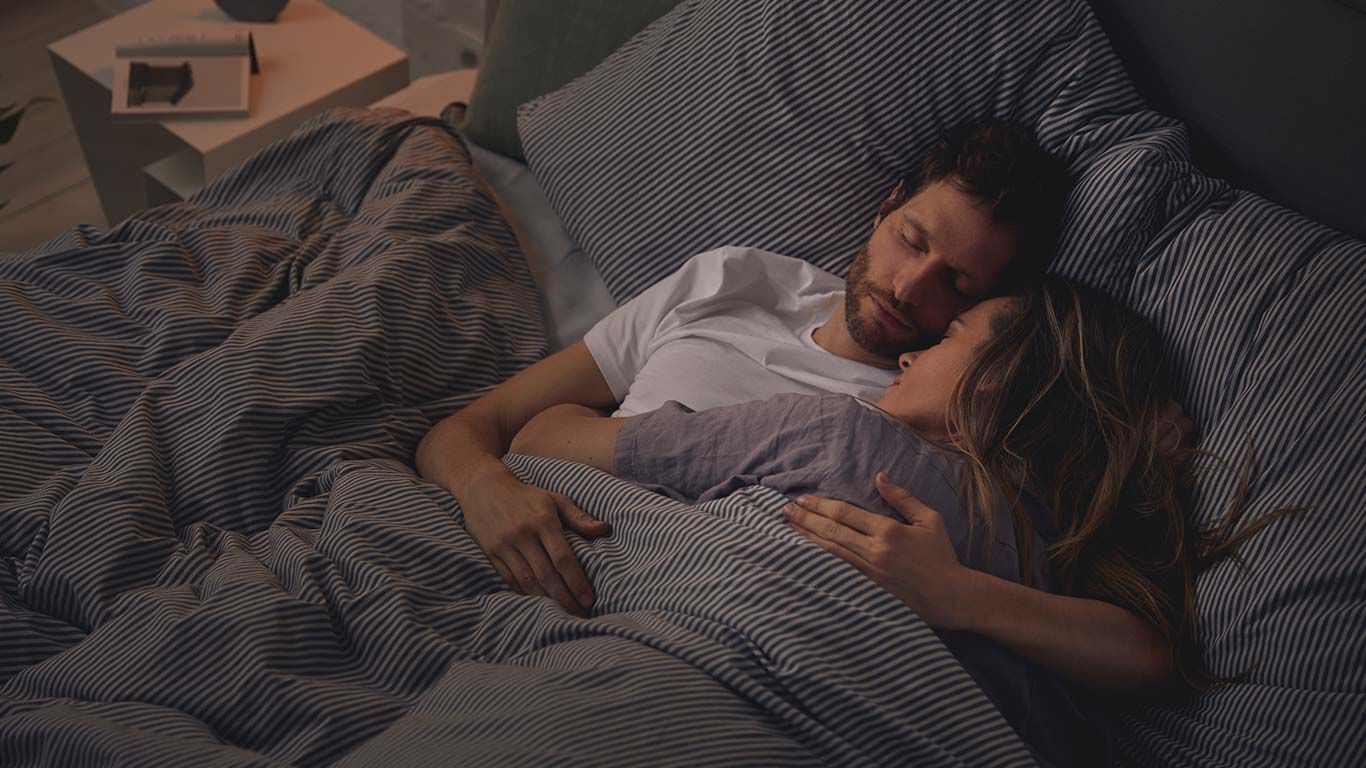
This leads us to the loaded question: How many hours of sleep do we need on average?
There are quite a few myths about the need for sleep. One of them is that Napoleon got by on just four hours of sleep a night. That is indeed true, but he made up for the rest during the day and is even said to have been seen sleeping on his horse. You can see what I'm getting at—you always have to add up the total amount of sleep over the course of a day. If small children sleep well and for a long time at night, they can easily manage without a nap. For adults, seven to seven and a half hours is usually quite enough; it doesn't have to be eight. And again, it’s total hours per day and not necessarily in one stretch!
One frequently hears that older people sleep less or less well through the night. Is that true?
The sleep of older people is actually more fragmented and they often wake up comparatively early. But that's perfectly okay and is related to factors such as lower mental or physical activity and flattening dopamine production. I always recommend a long nap, even as long as an hour and a half, so that they can get back to seven hours’ total sleep, including the hours that are slept at night.
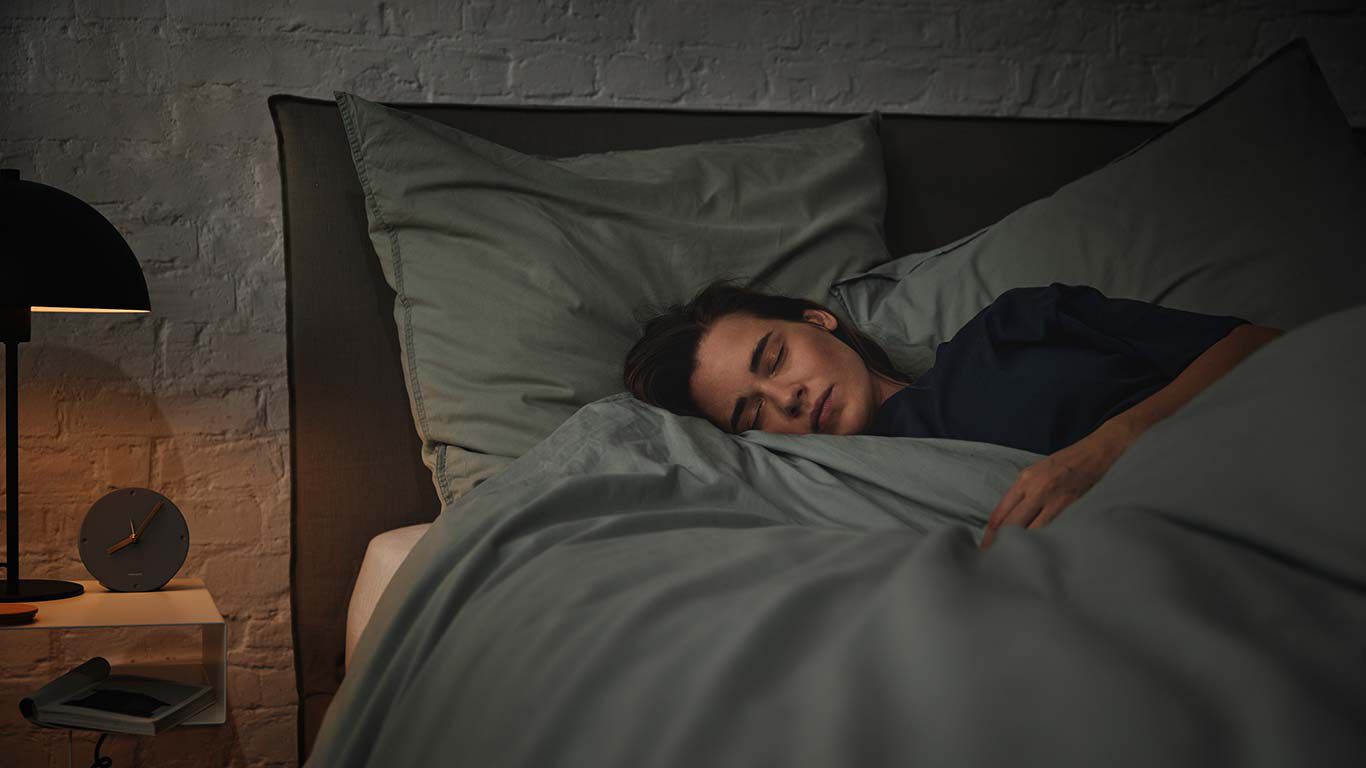
How can I tell if I'm getting enough sleep?
Quite simply by your fitness during the day—regardless of age. If you feel strong, can concentrate well and are in a good mood, then all is well. Of course, this doesn't have to be immediately after getting up, but during the course of the day. But if, for example, you are often disgruntled or easily irritable, feel listless or suffer from a lack of appetite, your need for sleep may not be adequately met.
Why do some people jump out of bed at 7 a.m., while others don't really get going until after sunset? What does science know about "larks" and "owls?"
In any case, both are equally productive, just at different times. The development of these so-called chronotypes is closely linked to the invention of electric light. For example, there is an extremely exciting research project at the University of California in Los Angeles in which people were sent to the Rocky Mountains for a certain period of time to live with the natural day-night rhythm. After just about two weeks in this environment, far away from civilizing stimuli, the different chronotypes converged again. Experiments like these clearly show the enormous influence the modern world has on our sleeping habits—and what happens when we escape from it for just a little while. In everyday life, however, such a chronotype can only be changed with a great deal of effort.

From your experience, what influence do factors like exercise and diet have on our sleep?
Our habits in both areas are incredibly important for healthy sleep. I always say that sleep's best friend is Nordic walking, which means moderate exercise or brisk walking for 20 to 30 minutes a day—that already has a significant effect on our sleep quality. When it comes to eating, you're on the right track with warm meals. Porridge in the morning, something rich for lunch, soup or oven-roasted vegetables in the evening—then you have a good basis for sleep. If you want to treat yourself to an espresso afterwards, go for it! It can also have a sleep-boosting effect.
Espresso for a healthy sleep? You'll have to explain that one!
For one thing, there are bitter substances that boost digestion. Secondly, espresso doesn't really contain much caffeine because the water is quickly pressed through the coffee grounds, giving the caffeine little time to dissolve, and thirdly, you usually drink it quite quickly. The body then reacts by releasing adenosine, a hormone that makes us tired. Thanks to the low caffeine content, the wake-up effect is absent, so unless you are particularly sensitive to caffeine, espresso can actually act like a homeopathic sleep aid. By contrast, classic “office coffee” is a real caffeine bomb. Unlike espresso, it runs through slowly and sits around for a long time, so it can really keep you up at night.

Let's turn back the clock again: How healthy do you think a power nap or a nap a day is?
Both professionally and personally, I'm an absolute fan of the power nap and always squeeze it in when I can. A power nap should last a maximum of 20 to 30 minutes so that you don't even get into deep sleep. Nevertheless, even this short period of time is enough to bring our stress level down a good bit. And It doesn't matter where you "power nap," so do it on the couch or in your office chair—wherever possible. The recommendations for a nap are somewhat different depending on your routine. For example, if you work shifts or haven't slept well at night, you can rest for up to 120 minutes during the day.

That sounds wonderfully relaxing. Yet many people struggle with a sleep disorder in the course of their lives. At what point should I really start worrying about it?
There are actually more than 80 different sleep disorders. The most common of these is insomnia—when you have trouble falling asleep or hardly sleep through the night. As a rule of thumb, if you can't get a restful night's sleep at least three times a week over a 14-day period, you should look into the issue a little more. Such a sleep disorder doesn't necessarily mean anything bad–maybe you're simply stressed by your job, suffering from lovesickness, planning a wedding, and so on. What is decisive is the level of suffering of the person in question. Is it a burden on their everyday life? Then they should do something about it and get professional help if necessary.
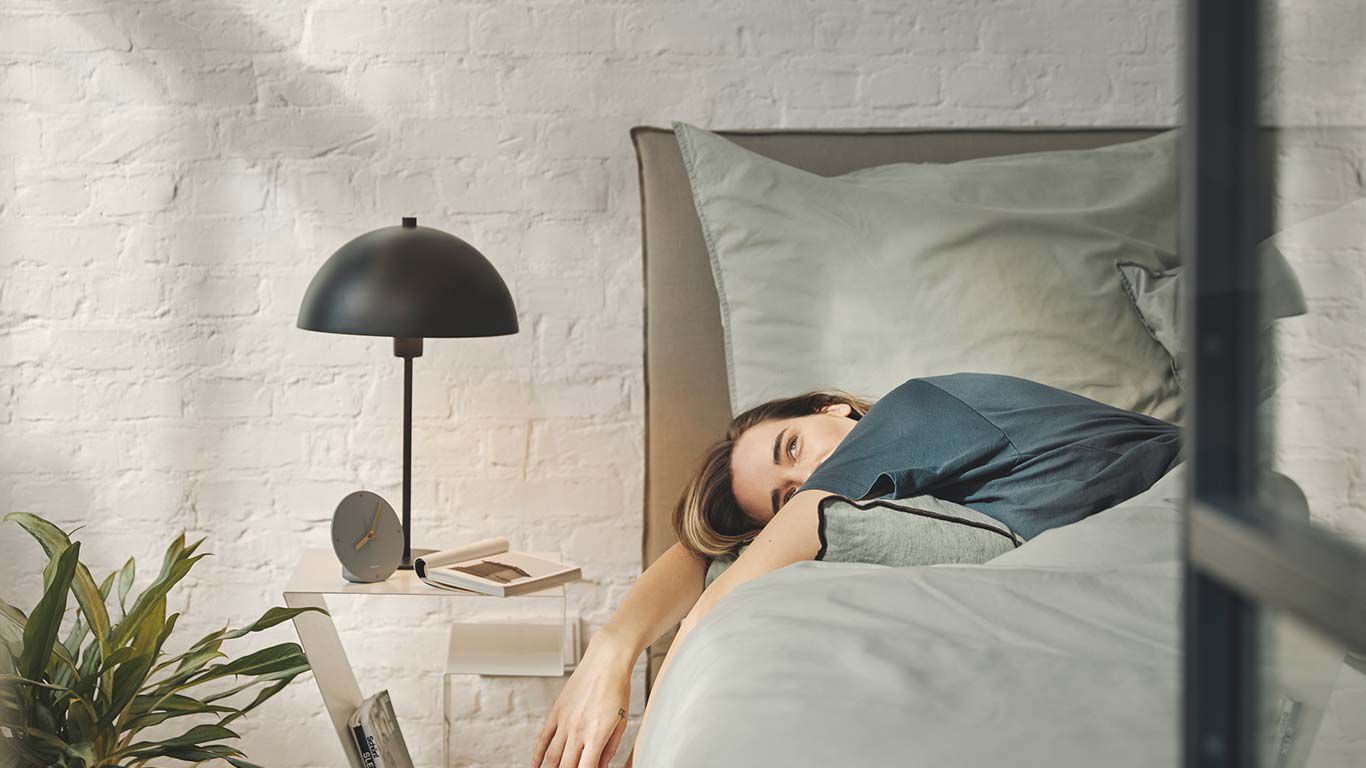
And how can I get my sleep back under control myself if I only sleep badly from time to time?
A good sleep or evening routine often works wonders here: a small cup of tea, reading a few pages, perhaps a podcast. Television is also OK—ideally with a blue light filter. The main thing is to have a set routine that your body can get used to. And the other thing is that you do something in the evening that you really enjoy! Forcing yourself to meditate, for example, even though you don't really feel like it, will only drive your stress and cortisol levels up again. In most cases, our organism can regulate sleep all by itself. We just have to let it.
For the very awake, these are the 5 things you should know about healthy sleep:
1. Seven to seven and a half hours of sleep is considered a recommended amount of sleep for most adults—calculated per day, so including any naps.
2. Sleeping is very important for our immune system, but also for our brain. When we sleep, our brain sorts out the flood of stimuli that we have consciously and subconsciously perceived during the day.
3. Even short power naps of up to 30 minutes reduce the stress level enormously. A midday nap, on the other hand, can last one to two hours—especially if you haven't slept much during the night.
4. Warm, light meals such as soups can be digested more easily by the stomach and intestines in the evening than cold ones, and thus can have a positive effect on sleep quality.
5. A good evening routine often helps with occasional sleep problems. What’s important is that you do something in the evening that you really like to do and don't force yourself to do anything you don’t love.











